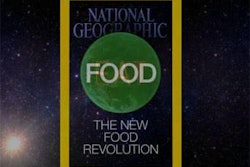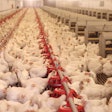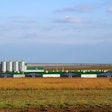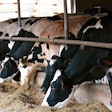COCERAL, FEDIOL and FEFAC have issued a joint statement urging the European Commission to make a decision on the European Union (EU) authorization of eight genetically modified (GM) products for import, food and feed processing to avoid further threat to the EU supply of soybeans, corn, rapeseed and products made from them.
COCERAL is the European association of cereals, rice, feedstuffs oilseeds, olive oil, oils and fats and agrosupply trade. FEDIOL, the EU vegetable oil and proteinmeal industry association, represents the interests of the European seed and bean crushers, meal producers, vegetable oils producers, refiners and bottlers. FEFAC is the European Compound Feed Manufacturers’ Federation.
The groups say the EU depends
In light of the EU dependency on imported agricultural products and vegetable proteins, Paul Della Tolla, COCERAL’s president, warns: “Any further delay – if not denial – by the EU Commission would result in an unavoidably suicidal situation for Europe which will lead to important disruptions to trade as well as serious legal uncertainty. Europe needs to adapt to the world which is rapidly globalizing and facing intensified external competition. The EU Commission, therefore, needs to act on this burden of ‘non-adjustment.’ As several of these GM products are currently being grown and harvested in the key exporting countries to the EU, it won’t take long before their unavoidable presence starts being detected in traditional commercial channels, regardless of whether GM or non-GM agricultural products are traded.”
Kevin Brassington, president of FEDIOL, said: “Without a guaranteed supply of imported soybeans from traders to oilseeds processors, approximately three million tons of EU-produced vegetable oils and 10 million tons of protein-rich meal, GM and non-GM alike, would no longer reach food and feed manufacturers and their customers. The financial consequences and liabilities of this scenario would jeopardize the economic viability of our industry.”
Ruud Tijssens, FEFAC president, said: “The urgent need for the EU Commission to provide legal certainty for feed business operators regarding market access to vital raw materials supplies. EU feed manufactures and livestock producers rely on imports of more than 30 million tons of protein-rich feed materials annually, for which there is no viable alternative available on the European feed market. Any further delay in the GM import approval process could erode further the EU livestock sector’s competitiveness.”
The eight GM products have been deemed safe by the European Food Safety Authority (ESFA) and have reached the final stage of the risk management process. The decisions for the related EU import authorizations lay in the hands of the EU Commission.














